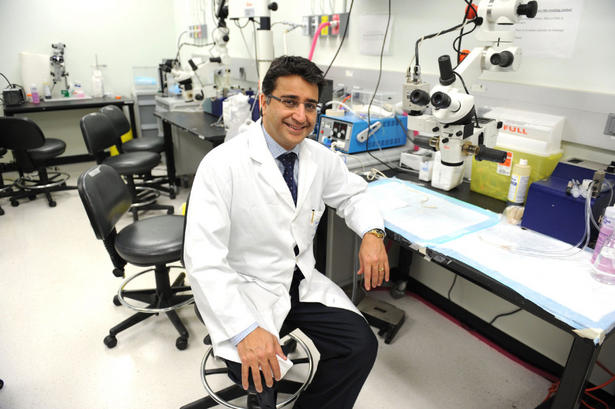University Hospital Zurich
Raemistrasse 100 Zurich, Zurich (Switzerland)
German Hospital Service
Destouchesstr. 1 Munchen, Bayern (Germany)
Moorfields Eye Hospital NHS Trust
162 City Road London, Greater London (UK)
Flinders Medical Centre
Flinders Drive, Bedford Park South Australia (Australia)
Better to transplant smokers lungs than staying on wait list UK study finds

Transplant patients who need new lungs have a better overall chance of survival if they receive donor lungs from smokers than if they remain on wait lists new British research shows
The study provides strong evidence there is a net benefit to patients receiving smokers lungs even though recipients of such organs are less likely to live as long after transplant as those who get lungs from nonsmokers
That is the studys key finding The net benefit to you a patient waiting for a lung transplant is that you are less likely to die if we continue to use lungs from smokers said Dr Shaf Keshavjee director of the Toronto Lung Transplant Program at the University Health Network and the Hospital for Sick Children
The findings reported Monday in the prominent medical journal The Lancet may spark controversy particularly in the UK where media have reported some transplant patients have died after receiving lungs from smokers
Keshavjee who was not involved in the research but cowrote the accompanying commentary said transplant centres around the world rely on donor lungs from smokers a practice supported by the International Society for Heart and Lung Transplantation
About 40 per cent of donors are smokers and omitting those individuals based on their smoking history would cut the number of available donor lungs by about half he said
It would be detrimental if we didnt use lungs from smokers because more people would die on the waiting list said Keshavjee who is also SurgeoninChief at the University Health Network which comprises the Toronto Rehabilitation Institute and Toronto General Toronto Western and Princess Margaret Hospitals
Right now there are 66 people waiting for lungs and three people waiting for a heartlung transplant in Ontario according to the Trillium Gift of Life Network which reports that one person dies every three days on the wait list
Keshavjee said the British study is important because it helps quell concerns about using smokers lungs
The researchers looked at survival rates for 2181 adults who needed a lung transplant over a 10year period between 1999 and 2010 Data in part from the UK Transplant Registry showed that of the 1295 lung transplants conducted about two of every five donor lungs came from smokers
Three years after transplantation patients who received smokers lungs had worse outcomes than those who got organs from nonsmokers The median survival for those with smokers lungs was 49 years while the median survival for those with nonsmokers lungs was 65 years
The researchers found the outcomes were worst when the donor smoked more than a pack of cigarettes a day
Despite those differences further analysis showed that a transplant patients overall chance of survival is greater if smokers lungs are included in the donor organ pool
According to the authors Although lungs from such donors smokers are associated with worse outcomes the individual probability of survival is greater if they are accepted than if they are declined and the patient chooses to wait for a potential transplant from a donor with a negative smoking history
Keshavjee said a limitation of the British study is that it does not clearly establish a link between a donors smoking history and the health of their lungs He noted that more study is needed in this area specifically on diagnosing the state of donor lungs prior to transplant
In Canada and the United States only about 15 per cent of available donor lungs are used in transplants Keshavjee said the remaining 85 per cent are not used because physicians cannot adequately determine their condition and ensure they are safe to use
Many potential donors have suffered severe brain injuries which triggers damage to organs through the release of inflammatory enzymes Potential donors may also have a ventilatorinduced lung injury or pneumonia
Keshavjee and colleagues at Toronto General Hospital have pioneered a technique to diagnose and repair donor lungs outside the human body The goal for using the XVIVO Perfusion System is to increase the number of usable lungs available for transplant in Canada
In the future lungs that might be damaged due to smoking history we can treat with antiinflammatories and we can use gene therapy and stem cell therapy to actually repair the structure of the lungs Keshavjee said
The first patient to receive donor lungs repaired using the XVIVO Perfusion System underwent surgery in December 2008 Since then Keshavjee said more than 50 people have received repaired donor lungs
Studies remain underway to evaluate the overall effectiveness of the potentially revolutionary technique
Date : 29 May, 2012
Reference : www.thestar.com/news/canada/article/1201962--better-to-transplant-smokers-lungs-than-staying-
